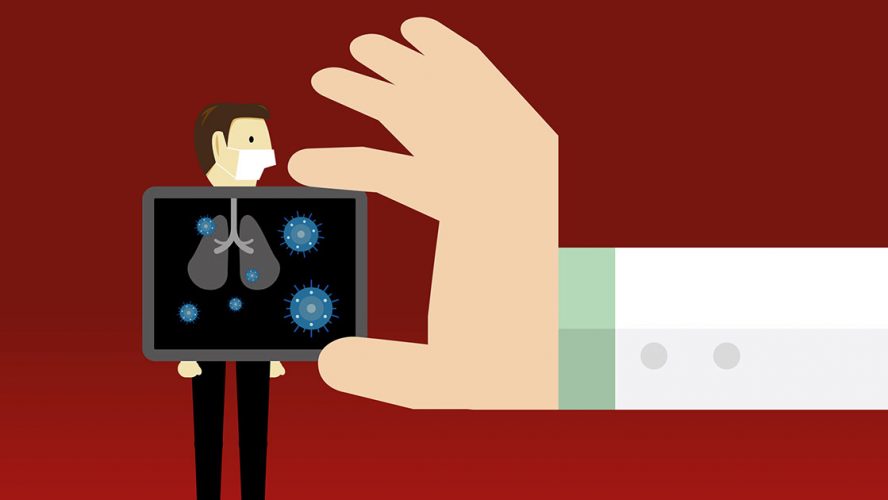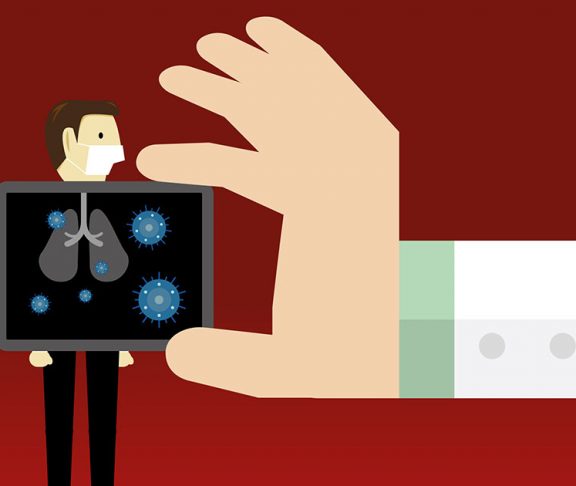The pandemic is no excuse to forego lung health. In fact, it’s more important than ever. Here is how the health industry is helping patients keep their lungs healthy.
Lung health has become an especially important concern since the onset of the COVID-19 pandemic. With the postponement of in-person medical appointments and the subsequent proliferation of telehealth visits, lung cancer screenings and related diagnosis rates decreased. Naturally, these decreases do not mean that lung cancer is affecting fewer Americans; rather, patients are more frequently opting out of their regular lung screening appointments. Most alarming, by postponing their screening appointments, these patients are increasing their chance of receiving a later-stage lung cancer diagnosis.
Screening for cancer
Lung cancer is one of the leading cancer diagnoses for both men and women in the United States. Lung cancer screening is the most effective way to look for the disease before a person has any symptoms. Innovative approaches to lung cancer screening and education allows patients to have a better understanding of their results and participate in shared decision-making with their healthcare team if further treatment is needed.
The Association of Community Cancer Centers (ACCC) is a national organization representing more than 28,000 cancer care professionals nationwide. The ACCC’s Innovator Awards program recognizes creative ideas and solutions to improve the quality of cancer care including lung screening. An effective approach greatly increases patients’ engagement with their lung health and willingness to follow through with routine screenings. For example, California’s PIH Health Whitter Hospital won a 2015 ACCC Innovator Award for its nurse-run lung screening program. Due to this program, PIH Health Hospital has detected more early-stage lung cancers than ever before. They improved their patients’ quality of care with a streamlined process to schedule screenings, manage follow-ups, and offer counseling to patients.
Improving health literacy
One of the most important aspects of lung cancer screening is that patients should fully understand their results. Most patients do not know what a pulmonary nodule is, let alone what it looks like. They may not know that most pulmonary nodules are noncancerous and that pulmonary nodules may show up in routine screenings due to prior infections or scarring in the lungs.
So, how can we as healthcare providers help? Instead of relying on medical terminology to explain lung screening results, we can speak to patients in layman’s terms. We want our patients to leave their appointments educated, with an understanding of what their results mean for their future lung health.
Effective use of patient education tools can also help. The Maine Medical Center Cancer Institute recently won an ACCC Innovator Award for development and use of a 3D lung nodule educational tool. This 3D tool allows patients to see, hold, and touch the exact type of pulmonary nodule that is shown on their screening results, including its size and texture. With this hands-on learning, patients feel less distressed knowing what their results mean and if there is a potential cancer risk.
“We’re not just talking to the patient. We’re building a tool to help people really understand what’s happening within their lungs,” explains Theresa Roelke, MSN, RN, AGNP-C, a geriatric nurse practitioner in Maine. She worked with a local art student to create the 3D lung nodule tool with a 3D printer.
Sharing the decision-making
As patients improve their understanding of lung health, they feel empowered to ask more questions and to take a more active role in their routine screening and any treatment decisions. Remember: patients have the choice of where they want to receive care. Many choose to go where they will receive patient-centered care based on shared decision-making with a multidisciplinary team.
However, prevention, including access to smoking cessation education and resources, remains the first step. Our hospitals and clinics have done much to protect patients against COVID-19. We all want the same outcome: for our patients to live a long, healthy life. Be proactive with your health by talking to your doctor about whether you need lung screening.


